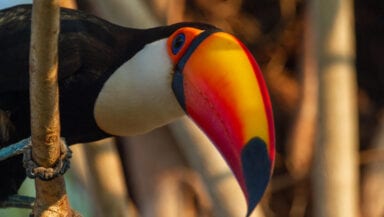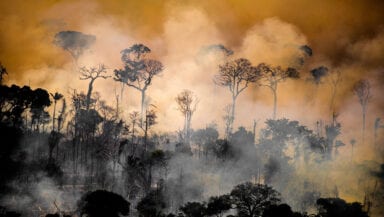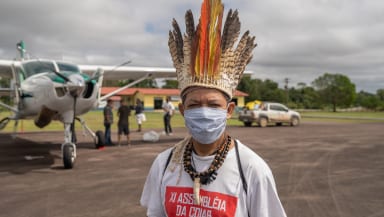The world’s largest inland wetland, the Brazilian Pantanal, was ravaged by fires in 2020. An area twice the size of Wales burned, destroying several large Indigenous territories and vast swathes of habitat for rare species like the hyacinth macaw, jaguars, maned wolves and giant anteaters.
But these fires were no accident. Just like the Amazon fires, according to officials, nearly all of them were caused by people, most likely on purpose by ranchers. Fire is commonly used by ranchers to clear land for cattle or to encourage new grass to grow on exhausted pastures. But in 2020, the land was so dry after two years of drought, the blazes burned badly out of control.
Last July, the Brazilian government banned the deliberate use of fire for clearing land, but this was never enforced.
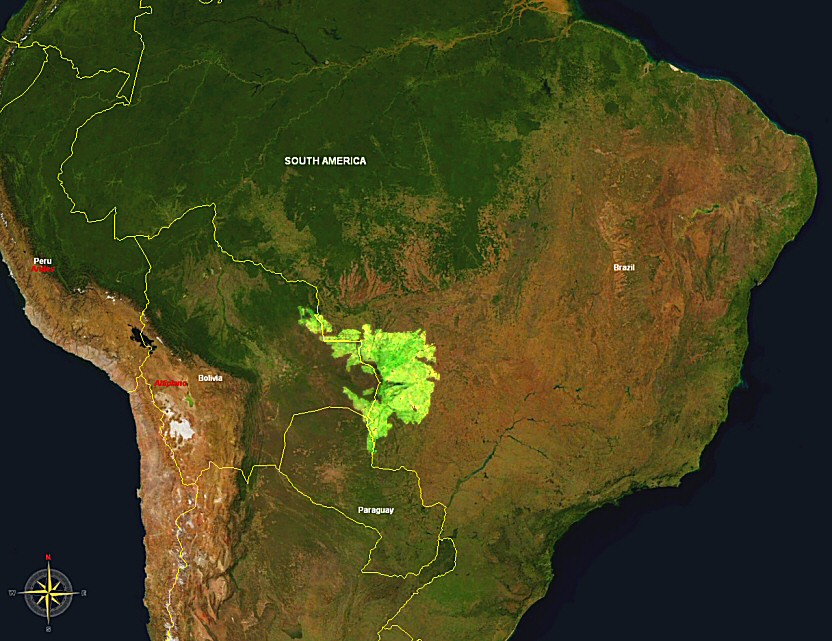
The highlighted area shows the size and locations of the world’s largest inland wetland, the Brazilian Pantanal
Tesco is pouring money into companies that drive these fires
A Greenpeace report reveals how supermarkets including Tesco, and fast food companies are funding the destruction of the Pantanal by buying meat from subsidiaries of the world’s largest meat processor, JBS.
The six-month investigation found that JBS and its leading competitors Marfrig and Minerva had slaughtered cattle bought from ranchers whose farms were linked to the Pantanal fires.
In four months from July 2020, 73,000 hectares of land burned on farms belonging to these ranchers and, in many cases, fires burned far beyond farm boundaries.
Tesco makes a big deal of the fact it doesn’t buy meat produced in Brazil. But it does still buy millions of pounds worth of meat from JBS-owned companies. In terms of impact, this basically amounts to the same thing. The meat (pork and chicken) it buys is also fed on Brazilian soya, another huge driver of forest destruction.
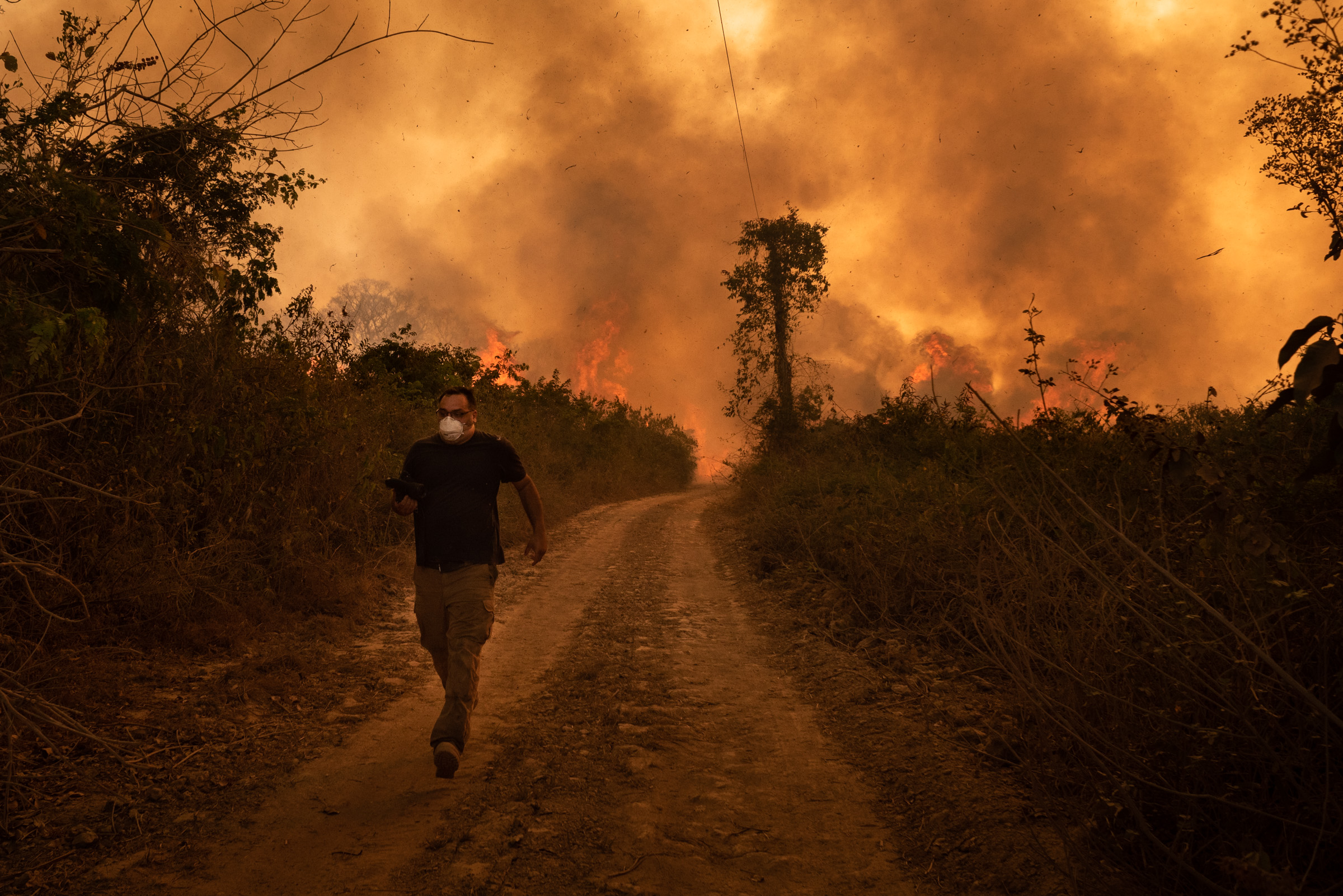
Residents flee as a forest fire burns out of control in the Pantanal Gustavo Basso/NurPhoto
How ‘cattle laundering’ allows JBS to ignore destructive practices
Any company that sources products from somewhere as important as the Pantanal should know exactly what it’s buying, and how it was made. But rather than monitor its full supply chain, JBS only looks at where the animals were at the time of purchase, ignoring where they’ve previously been, or practices in the rancher’s other operations.
This can lead to ‘cattle laundering’, where ranchers supply livestock from operations that break the law or company policy by sending them via a squeaky-clean ‘final supply ranch’, before they’re sent to slaughter.
Greenpeace wrote to JBS about this in January 2021, but JBS chose to ignore the findings presented and remain focussed only on its direct suppliers. It said all the ranches that had supplied it directly were compliant with its policy at the time of supply.
But according to its own website, in many cases JBS appears to have continued to buy from suppliers linked to the Pantanal fires or other violations, even after being informed. It hasn’t even said it’ll look into it. Nor did it say that it required ranchers to comply with its policy across the whole supply chain.
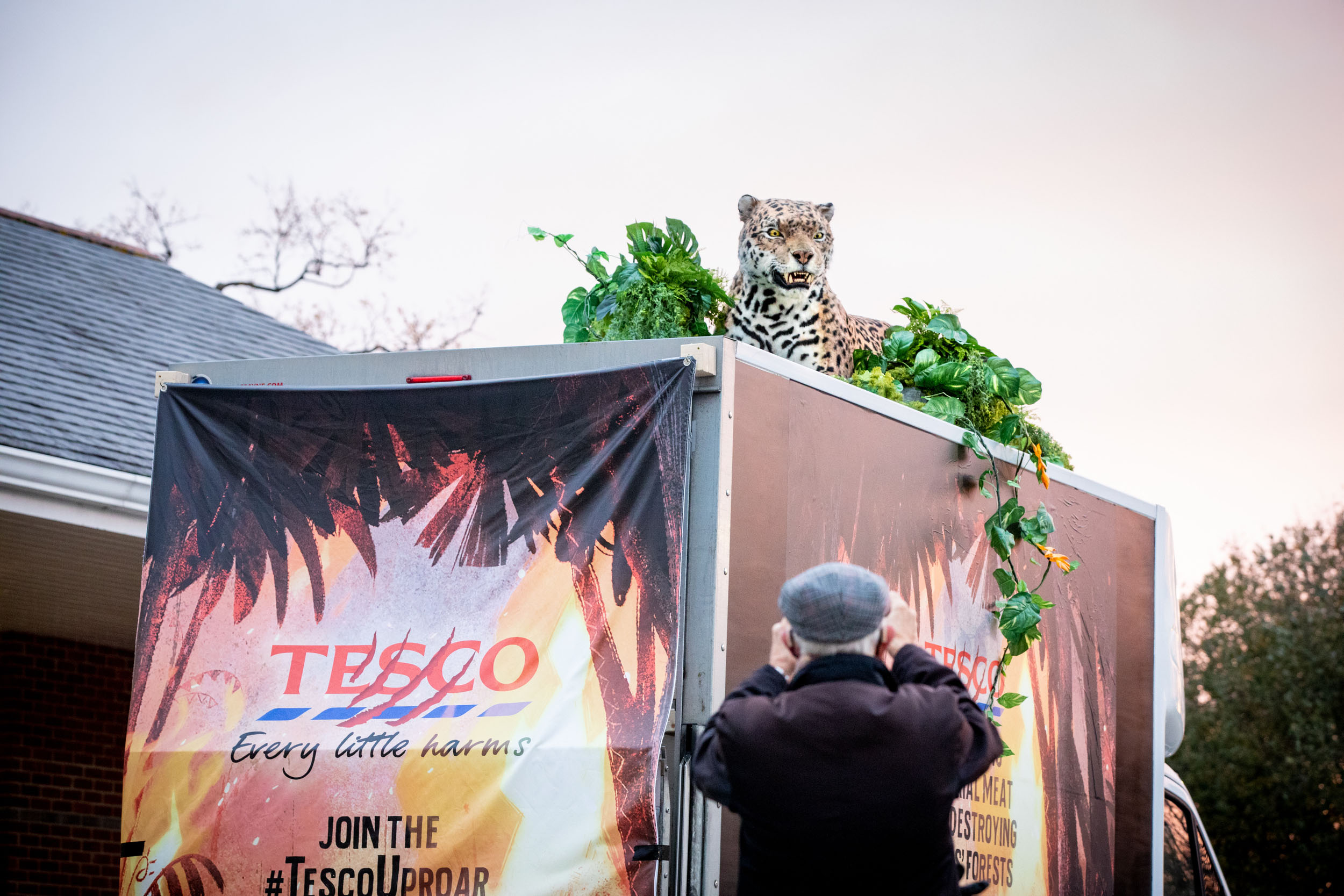
A life-size animatronic jaguar, roaring from the roof of what appears to be a Tesco delivery van, greets staff and customers at a Tesco store in Tunbridge Wells, Woodsgate Corner. © Luca Marino / Greenpeace
Is Tesco ignoring JBS’s destructive operations?
It certainly looks that way. Tesco has publicly promised to monitor JBS’ progress on a number of commitments, including monitoring across its whole supply chain, condemning the illegal use of fires and expanding its commitments on deforestation in the Amazon to include other habitats like the Pantanal. None of these commitments have been met, nor does JBS seem to have any intention of meeting them.
Forests are our life support system. Without them, the risk of future pandemics will soar, precious wildlife will be lost forever, millions of people will lose their homes and livelihoods and the climate crisis will continue to accelerate.
Industrial meat production is driving global deforestation at an alarming rate and JBS is one of the biggest culprits. It’s time for Tesco to see JBS for the company it really is – one that’s interested more in profit and power, than in fulfilling its decade-old commitments to protect our planet.
Humanity is at a crossroads. The climate and biodiversity crisis gets more serious with each passing week, and the window in which companies have time to act is closing fast. Right now JBS is hiding behind every excuse available to continue its forest and climate-wrecking practices. By trading with JBS, Tesco is enabling that destruction.
To protect forests, Tesco must drop JBS subsidiaries from its supply chain, and eventually stop selling industrial meat altogether.

